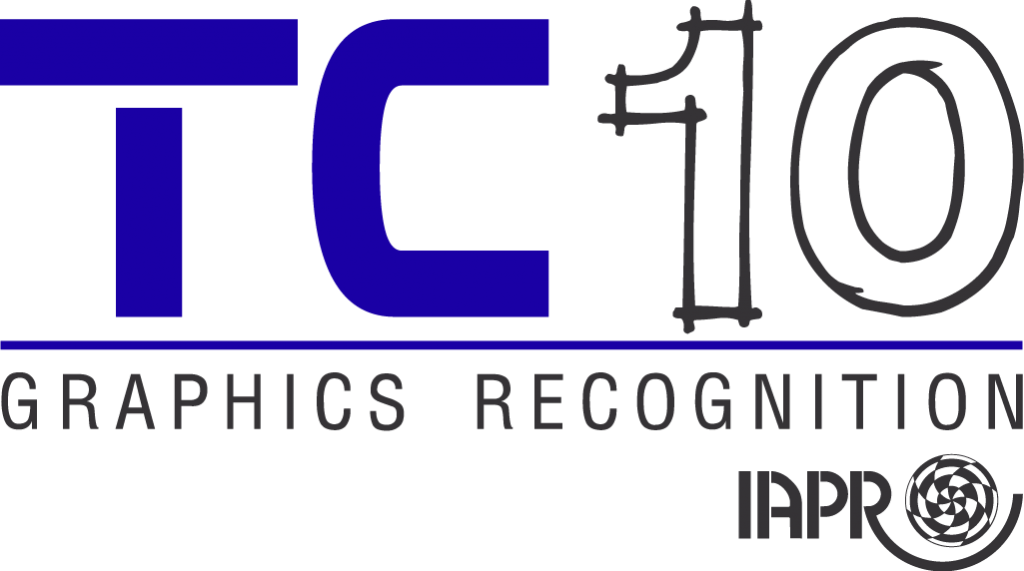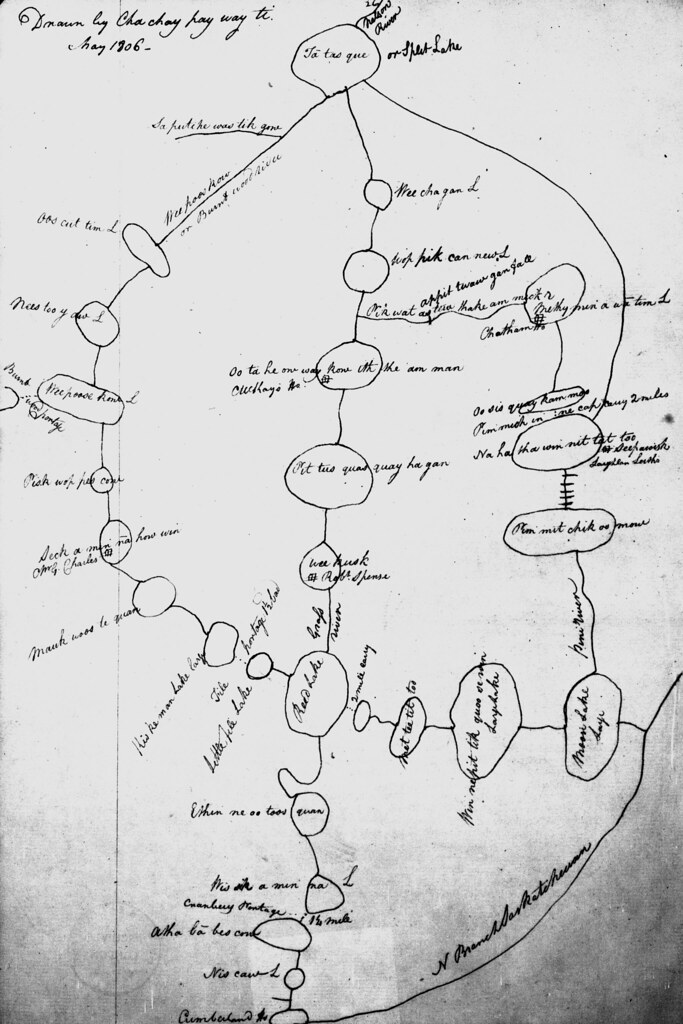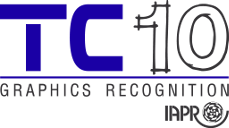

Welcome to the June 2021 edition of the TC10 newsletter.
In this issue, you will find Annual ICDAR voting results, latest IJDAR issue, the invitation to the summer school on Document Analysis, ICDAR call for nomination awards (extended) and related workshop information. Also, please check ICDAR news page for updates, and useful links.
Take care,
Christophe Rigaud
IAPR-TC10 Communications Officer
Table of content:
1) Upcoming deadlines and events
2) Annual ICDAR voting results
3) IJDAR article alert
4) Summer School on Document Analysis (SSDA 2021)
5) ICDAR 2021 Call for Nomination Awards (extended)
6) ICDAR 2021 Workshop on Human-Document Interaction (HDI)
7) ICDAR 2021 Workshop on Camera-Based Document Analysis and Recognition (CBDAR)
8) ICDAR 2021 Workshop on Graphic Recognition (GREC) (repost)
9) International conference “Fantastic Futures” 2021 (3rd edition)
10) Job offer (1 new)
Call for contributions: feel free to contribute to TC10 newsletters, by sending any relevant news, event, notice, open position, dataset or link to us on iapr.tc10[at]gmail.com
1) Upcoming deadlines and events
2021
- Deadlines:
- June 21, award nomination deadline ICDAR 2021 (extended)
- June 30, paper submission deadline ACPR 2021 (extended)
- Events:
- August 23-25, summer school SSDA 2021, Luleå, Sweden
- September 5, workshop GREC 2021, Lausanne, Switzerland
- September 6, workshop CBDAR 2021, Lausanne, Switzerland
- September 6, workshop HDI 2021, Lausanne, Switzerland
- September 5-10, conference ICDAR 2021, Lausanne, Switzerland
- November 9-12, conference ACPR 2021, Jedu Island, Korea
2022 and later
- Events:
- August 21-25, conference ICPR 2022, Montréal, Québec (QC), Canada
- December 2022, conference ICFHR 2022, Hyderabad, India
2) Annual ICDAR voting results
The voting has now finished, there were 136 votes, with 101 (74%) in favor of organizing ICDAR annually. Thank you all for the participation and feel free to have a look at the response details, ongoing discussions on Kialo platform and DAR strategy website. We invite you to attend to the 3rd Future of Document Analysis and Recognition Workshop.
It will be held on Sunday 6th 2021. We will consider the results of this voting and continue the discussion of the future directions of our community.
3) IJDAR article alert
Volume 24, Issue 1-2, June 2021
https://link.springer.com/journal/10032/volumes-and-issues/24-1
- Deep learning for graphics recognition: document understanding and beyond
Jean-Christophe Burie, Alicia Fornés & Muhammad Muzzamil Luqman - Arrow R-CNN for handwritten diagram recognition (open access)
Bernhard Schäfer, Margret Keuper & Heiner Stuckenschmidt - Knowledge-driven description synthesis for floor plan interpretation
Shreya Goyal, Chiranjoy Chattopadhyay & Gaurav Bhatnagar - Cross-modal photo-caricature face recognition based on dynamic multi-task learning
Zuheng Ming, Jean-Christophe Burie & Muhammad Muzzamil Luqman - CNN-based segmentation of speech balloons and narrative text boxes from comic book page images
Arpita Dutta, Samit Biswas & Amit Kumar Das - Translating math formula images to LaTeX sequences using deep neural networks with sequence-level training
Zelun Wang & Jyh-Charn Liu - Combination of deep neural networks and logical rules for record segmentation in historical handwritten registers using few examples
Solène Tarride, Aurélie Lemaitre, Bertrand Coüasnon & Sophie Tardivel - Offline script recognition from handwritten and printed multilingual documents: a survey
Deepak Sinwar, Vijaypal Singh Dhaka, Nitesh Pradhan & Saumya Pandey - Text recognition for Vietnamese identity card based on deep features network
Duc Phan Van Hoai, Huu-Thanh Duong & Vinh Truong Hoang - Persian handwritten digit, character and word recognition using deep learning
Mahdi Bonyani, Simindokht Jahangard & Morteza Daneshmand
4) Summer School on Document Analysis (4th edition, SSDA)

23rd to 27th of August 2021
Luleå (Sweden)
https://www.ltu.se/research/subjects/Maskininlarning/SSDA-2021?l=en
Digital Transformation in a Changing World
The objective of the school is to provide the participants with different aspects related to digital transformation of documents and beyond. All the latest research being carried out in the field of document understanding, document (image) analysis, natural scene text detection and recognition, historical document analysis, Corona and Virtualization, and new topics will be covered in the school.
The summer school will provide a great opportunity to participants to expand their knowledge and skills by linking the theory with the real implementation. Speakers from different areas of expertise will be invited to enrich the overall impact of the school. By the end of the school participants will have advanced knowledge and application experience in:
- Applied AI in document analysis
- Document analysis for business applications
- Natural scene text detection
- Complex document understanding
- Historical document processing
- Current challenges in the field of document analysis
- Contribution of major stakeholders in this field
- Corona and Virtualization.
A very unique aspect of this summer school will be the novel hybridization concept, allowing participants from all areas (depending on the current Corona restrictions) to participate either virtually, or physically; with our long-standing experience in distance education and conferences in Luleå and the northern region following pedagogical principals of effective teaching and learning. LTU is the perfect host for the summer school 2021 (during the demanding aspects of the currently changing world).
Contact: ssda2021@ltu.se
Website: https://www.ltu.se/research/subjects/Maskininlarning/SSDA-2021?l=en
5) ICDAR 2021 Call for Nomination Awards (extended)
Nominations Due: April 30, June 21 2021
The IAPR/ICDAR Award Program is an established program designed to recognize individuals who have made outstanding contributions to the field of Document Analysis and Recognition in one or more of the following areas:
- Research
- Training of students
- Research/Industry interaction
- Service to the community
Every two years, two awards categories are presented. Namely, the IAPR/ICDAR Young Investigator Award (less than 40 years old at the time the award is made), and the IAPR/ICDAR Outstanding Achievements Award. Each award will consist of a token gift and a suitably inscribed certificate. The recipient of the Outstanding Achievements award will be invited to give the opening keynote speech at the ICDAR 2021 conference, introduced by the recipient from the previous conference.
Nominations are invited for the ICDAR 2021 Awards in both categories. The nomination pack should include the following:
- A nominating letter (1 page) including a brief citation to be included in the certificate.
- Supporting letters (1 page each) from 3 active researchers from at least 3 different countries.
A nomination is usually put forward by a researcher (preferably from a different institution than the nominee) who is knowledgeable of the scientific achievements of the nominee, and who organizes letters of support.
The submission procedure is strictly confidential, and self-nominations are not allowed.
Please send nomination packs electronically to the TC10 and TC11 chairs:
Jean-Christophe BURIE, TC10 Chair (jcburie[at]univ-lr.fr)
Faisal SHAFAIT, TC11 Chair (faisal.shafait[at]seecs.edu.pk)
6) ICDAR 2021 Workshop on Human-Document Interaction (3rd edition)

September 06, 2021
Lausanne (Switzerland)
https://grce.labri.fr/HDI/
Following the positive feedback and the large audience of the first two editions of the HDI workshop in Kyoto (Japan) 2017 and Sydney (Australia) 2019, the Third Int. Workshop on Human-Document Interaction (HDI 2021) will focus on how humans interact with written information around them, and the interfaces between users and documents. The term document is meant here in the wider possible sense, to refer to any physical object that carries static or dynamic written information. The workshop aims to create a space for debate between the Document Image Analysis and Recognition and the Human-Computer Interaction communities. We consider that initiating this dialogue is relevant and timely.
Topics of Interest
● Augmented documents
● Linking physical and digital content
● Reading behaviour analysis
● Human factors
● User experience and usability
● Wearable sensors in reading
● Active learning
● Real time document image analysis algorithms
● Content personalisation
● Anytime document analysis algorithms
● Applications (e.g. document editing, interactive translation, collaborative editing)
Key datesSubmission deadline: May, 31
Notification: June, 21
Camera Ready: July, 5
Workshop: November, 21
Scope and Motivation
Visual processing and association is an important capacity in human communication and intellectual behavior. Visual information addresses patterns of understanding as well as spatial assemblies. This also holds for office environments where specialists are seeking for best possible information assistance for improved processes and decision making.
In the mean time, physical and digital documents are settling to coexist in peace – connecting the two is empowering for both sides. Technology advances, such as in augmented reality, permit bringing forms of digital interaction to the physical world and vice versa, while the linking between the physical and the digital world is done in an increasingly more fluid and realistic manner.
A new generation of readers, conditioned by the affordances offered by electronic content and the new media types (e.g. blogs and social media posts), have developed distinct reading behaviours and new ways to interact with written content. Wearable sensors allow observing the user and introducing the user context it in the loop, offering personalised services by intelligently linking written information with the user actions. Internet of things is evolving the way everyday objects (many of them carriers of text) can influence our actions.
7) ICDAR 2021 Workshop on Camera-Based Document Analysis and Recognition (CBDAR, 9th edition)

September 06, in conjunction with ICDAR 2021
Lausanne (Switzerland)
https://cbdar2021.univ-lr.fr
The aim of the CBDAR workshop is to provide a natural link between document image analysis and the wider computer vision community by attracting cutting edge research on the topic of Camera-Based Document Analysis and Recognition.
Topics of Interest
• Camera based acquisition of written information • Restoration of camera captured documents (dewarping, deblurring, etc.)
• Camera-based document analysis and recognition
• Document image quality assessment / estimation
• Image degradation models for camera captured characters/documents
• Text extraction from scene images
• Text in video
• Document image retrieval
• Device constrained techniques and algorithms
• Performance evaluation and metrics
• Mobile OCR
• Smartphone-based document scanning applications
• Feature extraction in camera capture situations
Important dates
• Submission Deadline (normal paper) : 23 May (hard deadline)• Submission Deadline (ICDAR re-submission): 23 May (hard deadline)
• Acceptance Notification: 21 June 2021
• Camera Ready Version: 05 July 2021
• CBDAR 2021 Workshop: Mon, 06 September 2021
Submission Information & Publication of Proceedings
Workshop proceedings with accepted papers will be published by Springer Lecture Notes in Computer Science (as is the case for the main conference ICDAR 2021).
Find more info please visit the workshop website and follow the twitter handle of the CBDAR workshop @cbdar_workshop:
https://cbdar2021.univ-lr.fr
8) 14th International Workshop on Graphics Recognition (GREC) (repost)
September 05-06, 2021
Lausanne, Switzerland
http://grec2021.univ-lr.fr/

GREC workshops provide an excellent opportunity for researchers and practitioners at all levels of experience to meet colleagues and to share new ideas and knowledge about graphics recognition methods. Graphics Recognition is a sub-field of document image analysis that deals with graphical entities in engineering drawings, comics, musical scores, sketches, maps, architectural plans, mathematical notation, tables, diagrams, etc.
The aim of this workshop is to maintain a very high level of interaction and creative discussions between participants, maintaining a “workshop” spirit, and not being tempted by a “mini-conference” model.
The workshop will comprise several sessions dedicated to specific topics related to graphics in document analysis and graphic recognition. For each session, there will be an invited presentation describing the state of the art and stating the open questions for the session’s topic, followed by a number of short presentations that will contribute by proposing solutions to some of the questions or presenting results of the speaker’s work. Each session will be concluded by a panel discussion.
Topics
- Analysis and interpretation of graphical documents, such as: Engineering drawings, floor-plans, mathematical expressions, comics, maps, music scores, patents, diagrams, charts, tables, etc.
- Recognition of graphic elements, such as symbols, logos, stamps, drop-caps, drawings, etc.
- Identification and localization of graphical mark-ups and annotations in written documents.
- Raster-to-vector techniques.
- Graphics-based information retrieval.
- Historical graphics recognition and indexing.
- Forensics (Writer identification/verification) in graphic documents.
- Description of complete systems for interpretation of graphic documents.
- Datasets and performance evaluation in graphics recognition.
- Authoring, editing, storing and presentation systems for graphics multimedia documents.
- 3-D models from multiple 2-D views (line drawings).
- Digital ink processing.
- Sketch recognition and understanding.
- Camera-based graphics recognition.
- Graphics recognition in born digital documents.
- Analysis of graphics on new digital interfaces.
- Graphics detection and recognition in real scenes.
- Graphics analysis in medical images
Important dates
- Submission deadline :
Abstract submission : May 10th, 2021 (hard deadline)Full paper submission : May 17th, 2021 – 11:59PM Pacific Time Zone (hard deadline)
- Acceptance notification: June 20th, 2021
- Camera ready due: June 30th, 2021
- Workshop : September. 05th –
06th, 2021
Accepted papers (full and short papers) will be published in a Springer LNCS volume dedicated to all ICDAR workshops. More information at: http://grec2021.univ-lr.fr/
General Chair : Jean-Christophe Burie
Program Co-Chair : Richard Zanibbi, Motoi Iwata and Pau Riba
9) International conference “Fantastic Futures” 2021 (3rd edition, FF 2021)
December 9-10, 2021
Paris, France
http://ai4lam.org
The ai4lam community is organizing its 3rd international conference “Les futurs fantastiques”, to be held at the Bibliothèque nationale de France, in Paris on December 9 & 10, 2021. This conference will be in hybrid format online/onsite.
The program committee is looking for papers, tutorials or workshops proposals on the topic of artificial intelligence applied to libraries, archives and museums.
Please check our Call For Papers: https://easychair.org/cfp/FantasticFutures21
We warmly invite you to submit your proposals, in the form of abstracts of 500 words maximum, on the Easychair platform by June 15, 2021 as instructed in the CFP. Proposals are accepted in both languages of the conference, English and French.
We will pay special attention to every submission in order to consider their integration in the conference program.
For the Futurs Fantastiques 2021 program committee,
Emmanuelle Bermes, PC chair
FF21 CFP: https://easychair.org/cfp/FantasticFutures21
More on ai4lam: http://ai4lam.org
Previous Conferences:
2019 : https://library.stanford.edu/projects/fantastic-futures
2018 : https://www.nb.no/artikler/fantastic-futures/
10) Job offers (1 new)
Post-doctoral research position – L3i – La Rochelle, France
Title : Extraction of graphic elements in comics books for emotion recognition
The L3i laboratory has one open post-doc position in computer science, in the specific field of document image analysis and pattern recognition
Duration: 12 months (an extension of 12 months will be possible)
Position available from: As soon as possible, 2021
Salary: approximately 2100 € / month (net)
Place: L3i lab, University of La Rochelle, France
Specialty: Computer Science/ Image Processing/ Document Analysis/ Pattern Recognition
Contact: Jean-Christophe BURIE (jcburie [at] univ-lr.fr)
Position Description
The L3i is a research lab of the University of La Rochelle. La Rochelle is a city in the south west of France on the Atlantic coast and is one of the most attractive and dynamic cities in France. The L3i works since several years on document analysis and has developed a well-known expertise in ‘Bande dessinée”, manga and comics analysis, indexing and understanding.
The work done by the post-doc will take part in the context of SAiL (Sequential Art Image Laboratory) a joint laboratory involving L3i and a private company. The objective is to create innovative tools to index and interact with digitised comics. The work will be done in a team of 10 researchers and engineers.
The work will consist in developing original approaches for extracting and recognizing graphics elements in comic panels in order to recognize emotions. Authors usually used different strategies for representing emotions such as shape of speech balloon, specific symbols, colour of the faces, etc. These elements are drawn among the other graphic elements (main characters, scenery, …) making the localisation and the extraction challenging. In order to extract these specific elements, the development of original approaches will be necessary. Deep learning-based strategies can be explored to reach this goal. This work will be done in collaboration with other researchers working on text understanding.
Qualifications
Candidates must have a completed PhD and a research experience in image processing and analysis, pattern recognition. Some knowledge and experience in deep learning are also recommended.
General Qualifications
• Good programming skills mastering at least one programming language like Python, Java, C/C++
• Good teamwork skills
• Good writing skills and proficiency in written and spoken English or French
Applications
Candidates should send a CV and a motivation letter to jcburie [at] univ-lr.fr.
